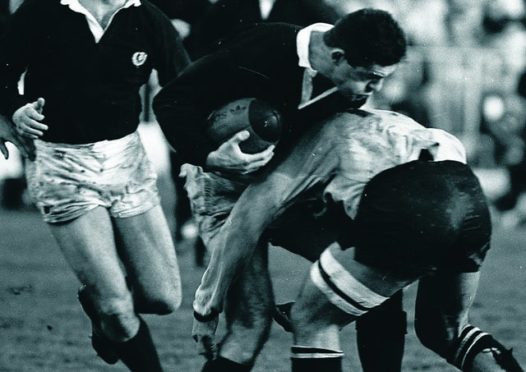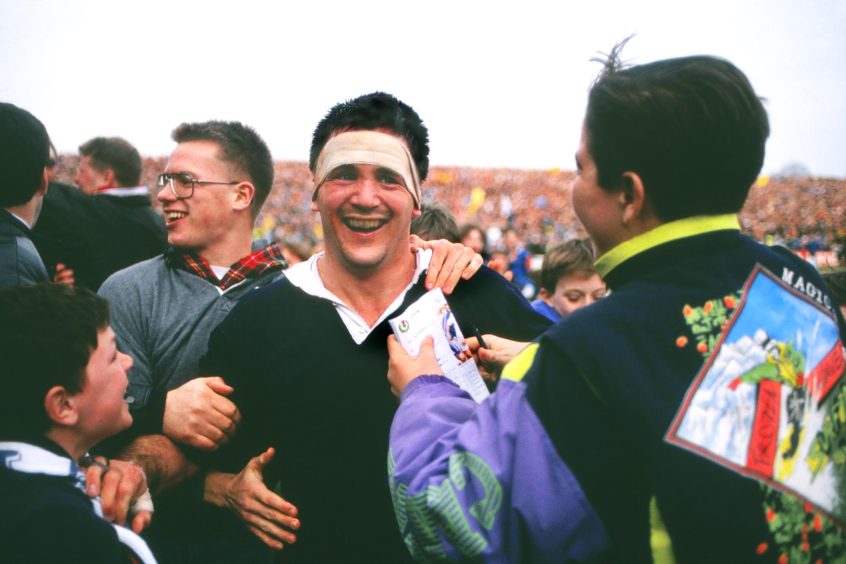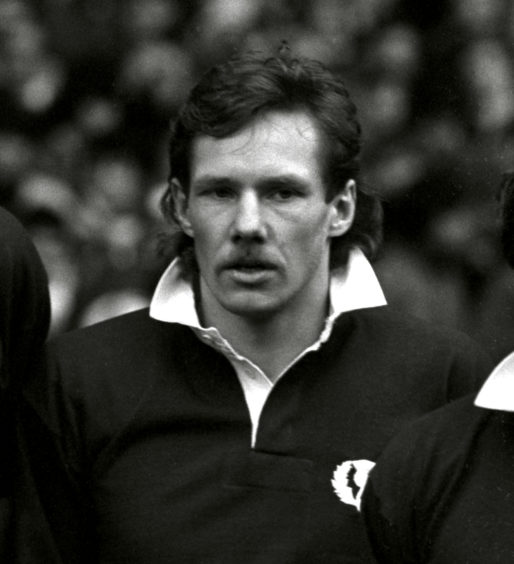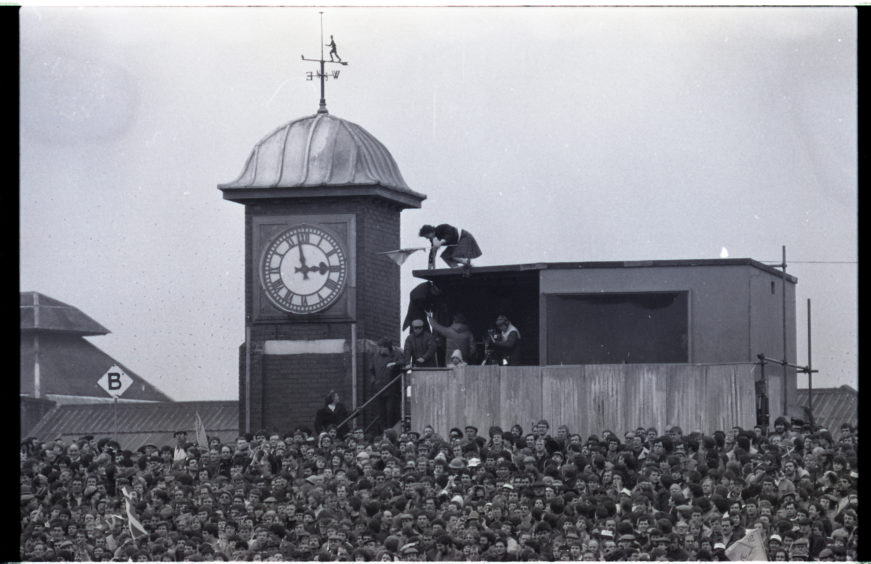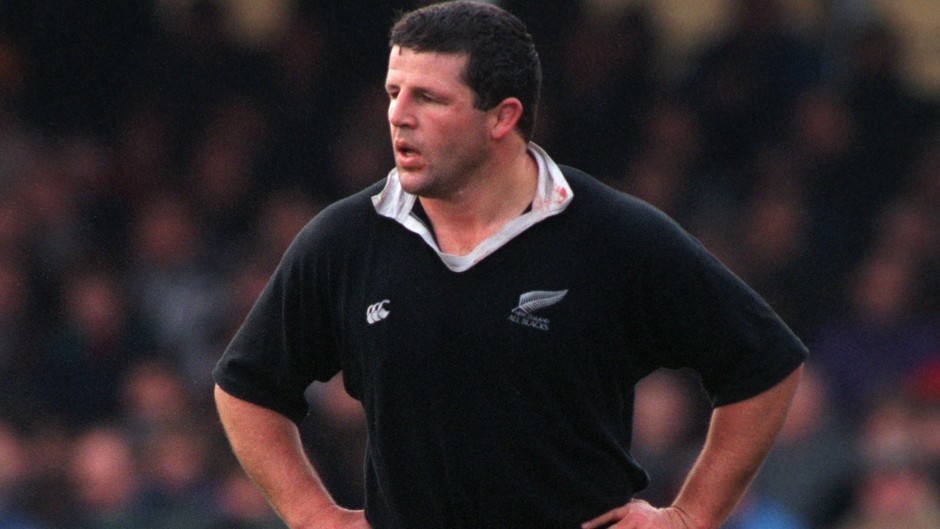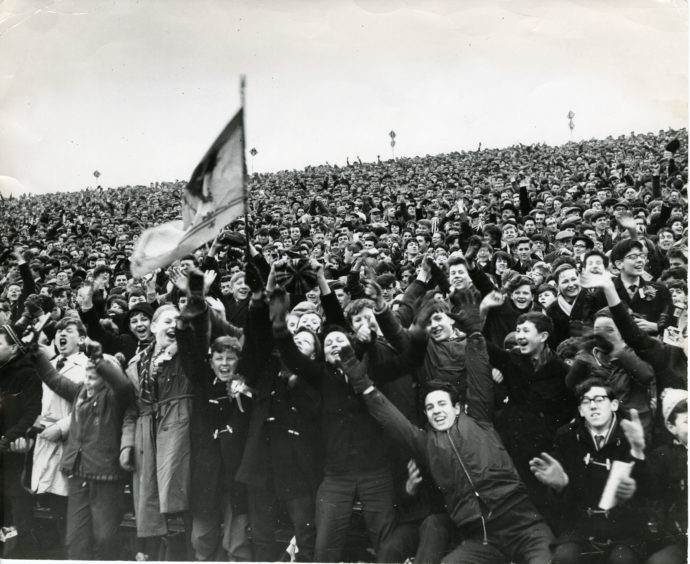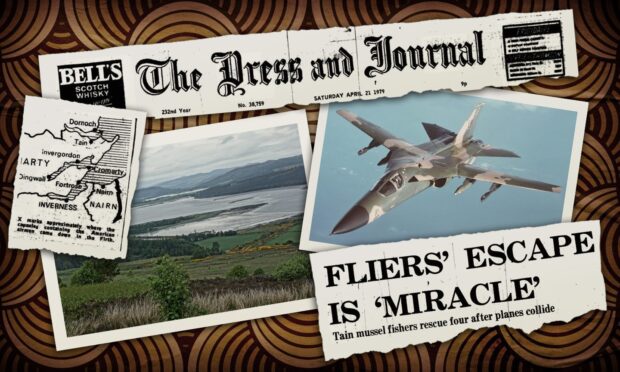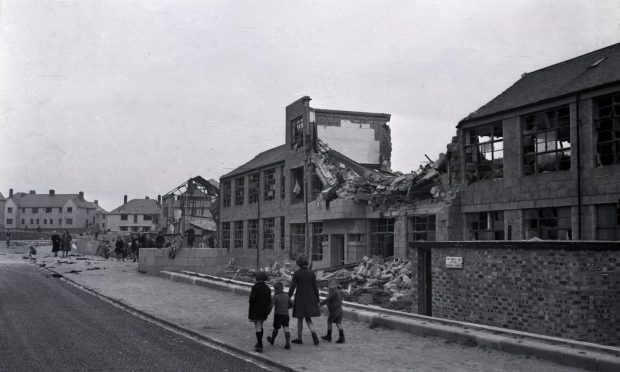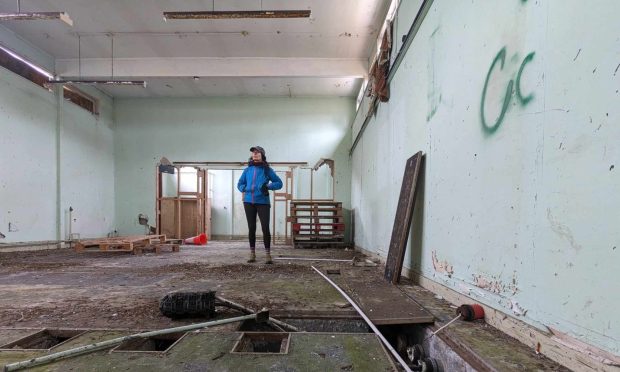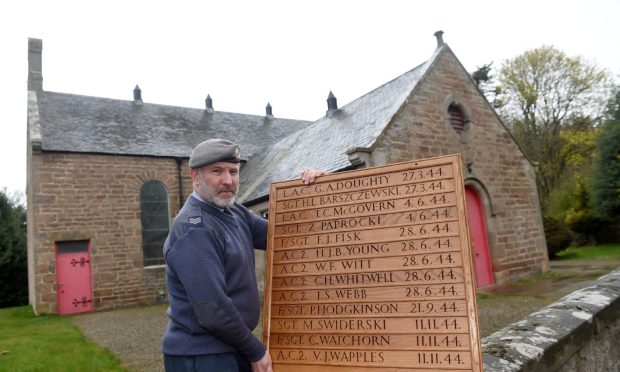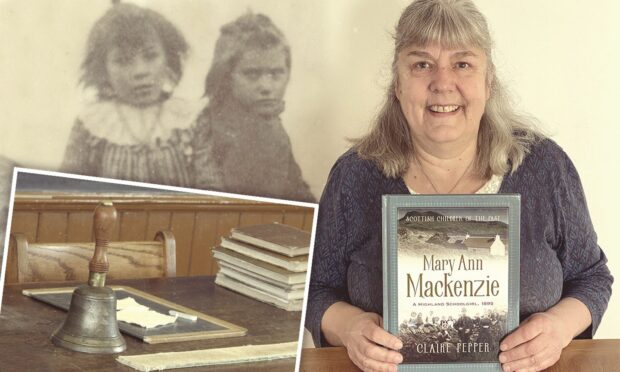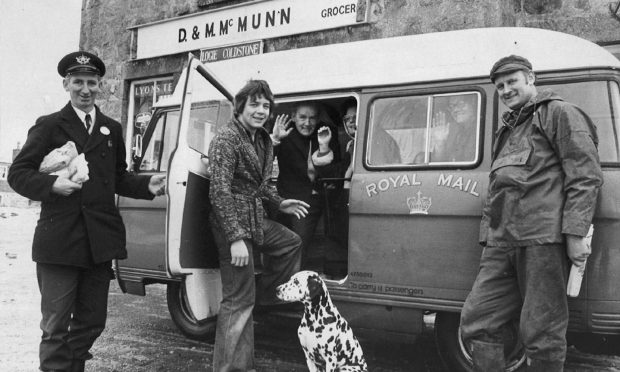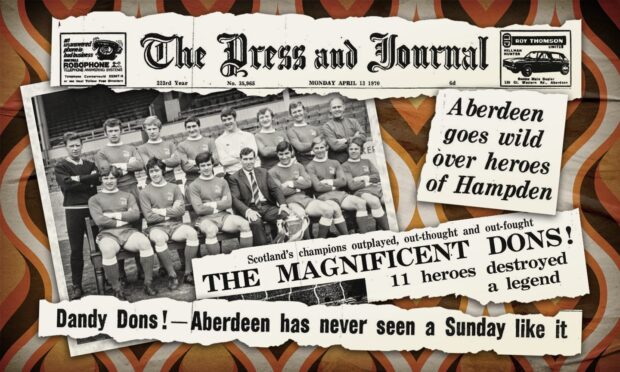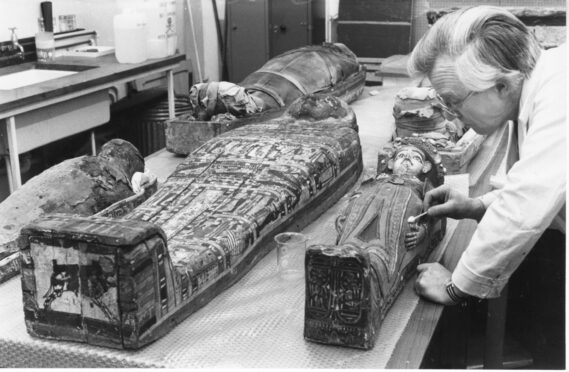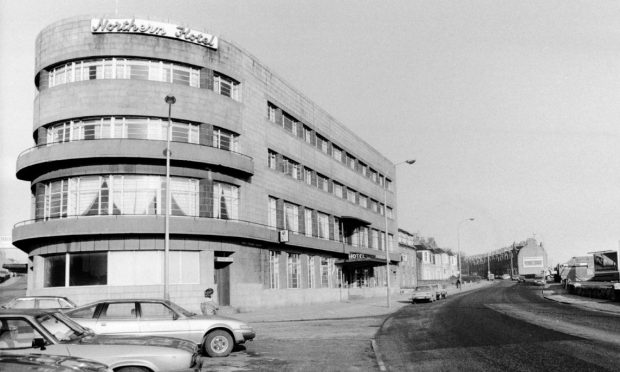Sean Fitzpatrick witnessed almost everything on a rugby field and still throbs with delight at the prospect of watching some red-blooded entertainment with forwards flinging themselves into the fray and preferably involving his beloved All Blacks.
During his 92 Test caps, he endured a litany of fraught experiences, whether being head-butted by Finlay Calder during the latter’s last international match in 1991 – the Scot escaped with a warning – or having his ear bitten twice by South Africa’s Johan le Roux in 1994, leading to a lengthy ban for the perpetrator.
Yet, while it’s one of the more galling sporting facts that the Scots have still to record their maiden Test victory over the All Blacks after more than 100 years of effort, they certainly came close when they met the hosts in Auckland 30 years ago this week.
Auld Enemy victory
David Sole’s men had arrived in the Land of the Long White Cloud just a couple of months after famously securing their Grand Slam with their pulsating 13-7 triumph over England at Murrayfield.
So hopes were high they could take another stride forward when they landed in New Zealand in May 1990 for a tour embracing eight matches in less than a month.
To their credit, given the rigorous schedule – which has never been repeated – the Scots won four and drew one of their first five fixtures, which included a 16-16 stalemate with Wellington and a 21-12 success over highly-rated Canterbury.
Yet it seemed it was business as usual when the home side surged to a convincing 31-16 triumph in the First Test at Carisbrook in Dunedin on June 16, where Fitzpatrick and his confreres produced an immensely powerful performance which was treated as a routine exhibition of their superiority by most of the locals.
The tourists managed three tries through Chris Gray, Sean Lineen and the endlessly resilient Sole, but conceded five from Kieran Crowley, Grant Fox, Ian Jones and a brace for John Kirwan.
So far, so predictable, but the next tussle was far closer.
And, if they had been given the rub of the green, it might even have been the day the Scots finally broke their All Black hoodoo.
The setting was the intimidating venue at Eden Park in Auckland; a place where the hosts lose so rarely that the words “Abandon Hope All Ye Who Enter Here” might as well be pinned up in the opponents’ dressing room.
However, Scotland, motivated and inspired by their supremely competitive coach, Jim Telfer, were in no mood to accept second best.
They surged out of the blocks, knocked their rivals out of their rhythm and built up an 18-12 lead by the end of the first half.
They orchestrated tries through Alex Moore and Tony Stanger, while Gavin Hastings landed both conversions and a further two penalties and, despite Richard Loe crossing for New Zealand, Sole’s men were well worth their narrow advantage.
Kiwi Express
The trouble was that they couldn’t add to that points tally in the second period, oblivious to a magnificent defensive effort which halted the Kiwi Express in its tracks.
Yet the longer the proceedings progressed, the closer the wait for that cherished victory seemed within touching distance.
However, metronomic kicker Grant Fox had one of the best days of his illustrious career, slotting six from six attempts and gradually squeezing the life out of his rivals, although it’s debatable whether he should have received so many opportunities in the first place.
Indeed, the penalty which allowed him to level matters in the final quarter remains highly controversial.
Hastings slipped while he was fielding a Crowley punt, and was tackled by Mike Brewer, the flanker, who was clearly in an offside position.
Yet the referee, Derek Bevan of Wales, chose to punish Hastings for not releasing the ball, whereupon Fox levelled the scores and added the winning points with 10 minutes to go as a massive punt into the Scottish solar plexus.
It was a disappointing outcome, but the ebb and flow of the contest and the resilience and tenacity of the visitors in their rearguard action highlighted the progress which the side had made and they continued to advance in the next 18 months.
That was evident when the Scots reached their first – and, to date, only – World Cup semi-final in the autumn of 1991 when they were narrowly edged out by England 9-6 in a tense battle at Murrayfield.
The other All Black match which the Scots could have won
Back in 1983, a peppery-hot exchange between Scotland and New Zealand at Murrayfield almost brought the hosts a first victory against their long-time adversaries.
Towards the end of a pulsating contest, David Johnston’s perfectly-weighted kick ahead was pounced on by Jim Pollock, who sprinted over for a try to tie matters at 25-25.
Peter Dods was presented with a difficult conversion to make history, but narrowly missed the target. And the frustration among some of the Caledonian contingent still lingers on.
John Rutherford was at his indomitable best throughout the proceedings, which offered Scots in his mould a shot at redemption, following the summer’s ill-starred sojourn to New Zealand with the British and Irish Lions, which turned into an All Black trauma for the Scots, not least their coach, Jim Telfer.
Yet if there was any sense of inferiority complex when the All Blacks turned up in Edinburgh on November 12 1983, it was swiftly cast to the wind.
“I remember the South played them at Gala and were given a right hoicking, but we told each other at the finish, ‘Right lads, we’ve had enough of this!’,” recalled Rutherford, whose brace of drop goals, along with penalties by Dods, kept Telfer’s side in the hunt, despite their opponents’ attempts to seize the initiative.
“Make no mistake, the All Blacks were fabulous, and it was a question of clinging on to their coat tails, putting points on the board whenever we were in their territory, and basically stopping them playing, which was easier said than done when guys of the calibre of Bernie Fraser (who scored two of his side’s three touchdowns) and Stu Wilson were sparking magic.
“The thing was that we weren’t intimidated by them.
“We had a top-class pack and they out-rucked New Zealand throughout the game, which didn’t happen very often.
“We had powerhouses among the forwards – David Leslie was just immense; it was as if he was laying down a statement after not being selected for the Lions squad – and with people such as Colin Deans, Jim Calder, the Bear (Iain Milne), and Iain Paxton playing their hearts out, we were always in the hunt.”
The visitors led 16-15 at the interval, yet the crowd recognised the huge physical effort which their compatriots were displaying and, as Roy Laidlaw recollects, it was as if the players were determined to prove their quality.
“We had a good group of lads and we had gradually formed a strong bond by going to New Zealand in 1981, Australia in 1982 and then the Lions trip for a lot of us, which was a bad experience, so we definitely wanted to prove a point when the All Blacks came to Murrayfield,” said Laidlaw, who provided sterling assistance to his colleagues.
“They had given us plenty of stick when we were in New Zealand, so, yes, there was a ferocity about our performance and we put them on the back foot by the finish.
“You had somebody like Leslie, who had, crazily, missed out on the Lions, but was the European Player of the Year and he put in an immense shift.
“By the end, when Pollock scored his try, we honestly thought we might sneak it, but it wasn’t an easy conversion, and Dodsy had already landed five penalties, so there was no question of apportioning blame.
“We have never beaten them in our history but we gained lots of belief from that display and it helped in building our confidence, prior to the 1984 Five Nations Championship (when Jim Aitken’s troops famously won the grand slam).”
Fitzpatrick talks about his team’s domination over Scotland
When I asked former All Blacks skipper, Sean Fitzpatrick, why he thought the Scots had never defeated the Kiwis in the whole history of the game, his response was candid.
He said: “It has to have something to do with belief, because I came up against some pretty decent Scotland sides in the 1980s and early 1990s and we had to fight hard often enough, but we invariably came out on top, and part of that was simply down to the fact we knew how to close out these contests.
“There were some terrific players in the Scotland ranks, people of the calibre of the Hastings brothers and (Gary) Armstrong and we could well have been beaten at Eden Park in 1990 when the Scots pushed us every inch of the way.
Wales misery
“So I suppose our unbeaten record will come to an end eventually, but I’ll tell you this: nobody in an All Black jersey wants to be a member of the first NZ side to lose to Scotland, so that is a big motivation for the current players.
“My old man (Brian) was in the side which went down to Wales back in 1953 and he knew he had to take that to the grave with him.
“I also remember the Scots holding us to a (25-25) draw at Murrayfield and the reaction from our supporters and the press was: ‘What happened? We didn’t win’.”
“We didn’t lose either, but that wasn’t the point. You got used to going out and being expected to win every single match that you played.
“You weren’t just involved in a game: you were out there representing your whole country and trying to maintain a proud legacy.
“It put pressure on you. But, personally, I thrived on it.”
